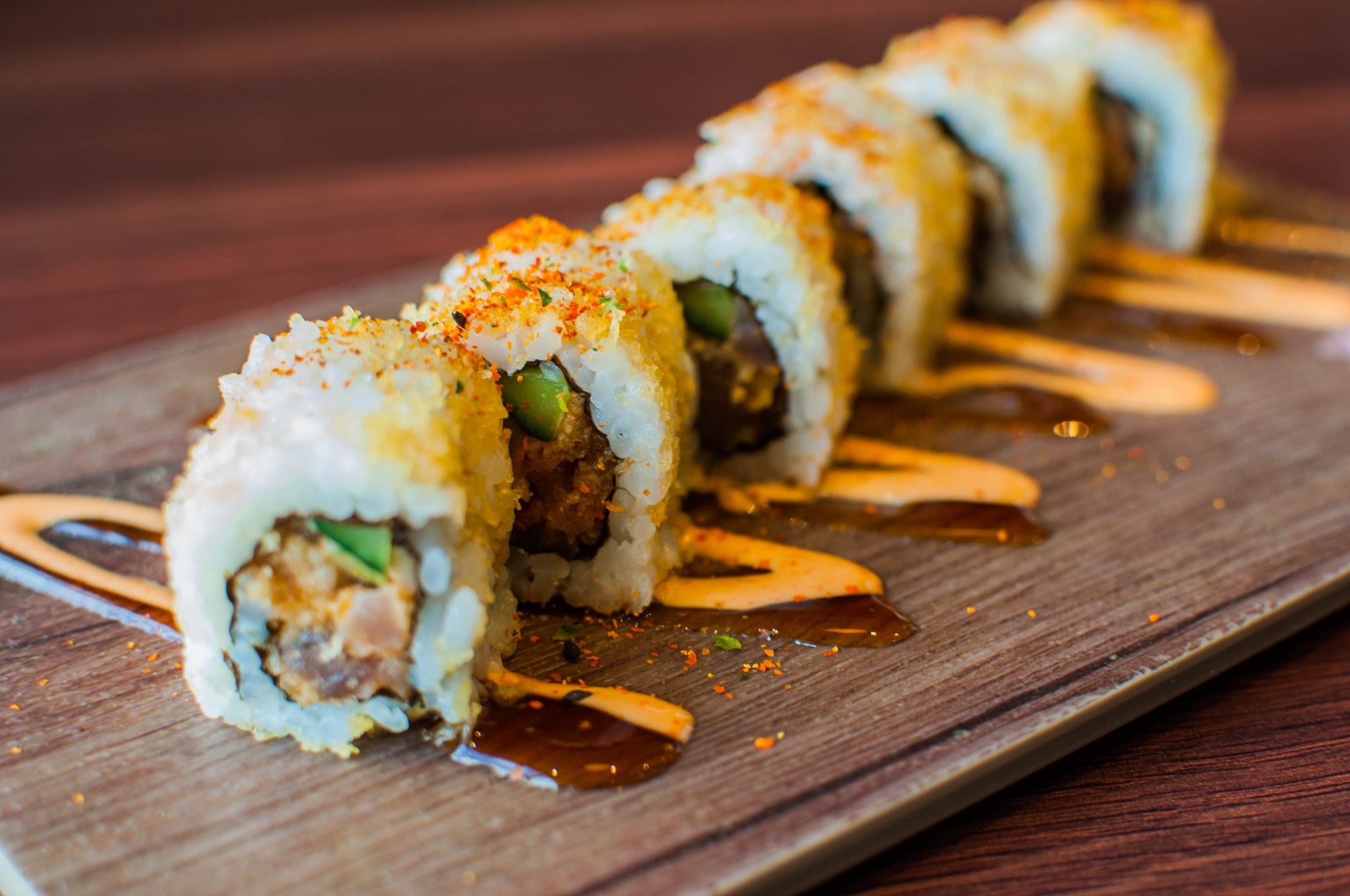Can You Eat Sushi When Pregnant?
Is It Ever Safe to Eat Sushi During Pregnancy?

Pregnancy comes with a long list of dos and don'ts, including which foods are safe to eat and which fall under the "best avoided" category. Unfortunately, the good stuff — like coffee, a full-bodied pinot, a brie-smeared baguette etc. — is often off-limits.
But what about sushi? As tasty as it is, eating sushi while pregnant has been a hot topic of discussion for years (a quick scroll through Reddit is enough to make anyone's head spin). Some people believe sushi is a definite no-no during pregnancy, while others argue it can be safe if precautions are taken.
With so many rules and various opinions crowding the mommy blogging sphere, it's hard to know what's safe and what isn't when it comes to food and prenatal nutrition. So, we did a little digging and reached out to experts to get the scoop on whether or not you can eat sushi when pregnant. Here's what we found out.
Can You Eat Sushi When Pregnant?
The short answer is no, but it's not as bad as it sounds! Pregnant people should steer clear of raw sushi, but plenty of cooked sushi options are safe to eat.
"Pregnant people should avoid all raw or undercooked fish," says Amy Roskin, MD, a board-certified ob-gyn and the chief medical officer of Seven Starling. "The American College of Obstetrics and Gynaecology advises this due to the increased risk of bacteria and parasites in raw fish. However, you can stick to types of sushi where the fish components are cooked."
In other words, if it's vegan, vegetarian, or fully cooked, you shouldn't have a problem. However, some types of fish, including swordfish, king mackerel, tilefish, and shark, contain high levels of mercury and should be avoided altogether, whether they're cooked or not.
Is Sushi Safe For Pregnancy During the First Trimester?
Sushi made with raw or undercooked fish should be avoided during any trimester of pregnancy. This is because raw or undercooked fish can contain harmful bacteria or parasites, like listeria, which can lead to serious complications for the pregnant person and the developing fetus.
According to the Centres For Disease Control and Prevention, pregnant individuals are 10 times more likely than non-pregnant individuals to contract a listeria infection. If a pregnant person becomes infected with listeria during pregnancy, it can lead to miscarriage, stillbirth, premature delivery, and other health problems for the baby.
"Maternal listeria infection during pregnancy is often mild, but fetal infection is associated with a high mortality rate o25 to 35 percent," explainsKelly Johnson-Arbor, MD, a toxicology physician for Poison Control. "To avoid contracting foodborne illnesses such as listeria, pregnant people should avoid eating raw fish, including sushi, sashimi, and shellfish."
What Sushi Can You Eat When Pregnant?
While raw sushi is a no-go, pregnant people can still enjoy a variety of safe and delicious sushi options. Cooked sushi rolls, such as California rolls and vegetable rolls, offer a safer alternative for pregnant individuals craving sushi. However, it's important to be mindful of the mercury content in fish when making sushi choices.
The Food and Drug Administration provides a "Best Choices" list of fish that are safe to eat during early pregnancy, including salmon, flounder, and herring.
If you're unsure about the safety of a specific dish, it's best to err on the side of caution until you can consult a healthcare professional.
What About Eating Sushi When Breastfeeding?
If you're a true sushi-lover, chances are you'll be craving your go-to order after you give birth. But is it actually safe to resume eating sushi if you're breastfeeding? Generally, it is. But the same concerns apply when it comes to the consumption of mercury. "When a mother eats fish, the mercury in the fish can be passed into her breast milk. However, the benefits of breastfeeding may be greater than the possible adverse effects of exposure to mercury through breast milk," according to the Centres For Disease Control Prevention.
You can check out the fish consumption guidance for pregnant and breastfeeding people from the Food and Drug Administration and the Environmental Protection Agency to determine which kind of fish is safest and how much to eat. And of course, if you still have questions, contact your healthcare provider to have them weigh in on your circumstance.






